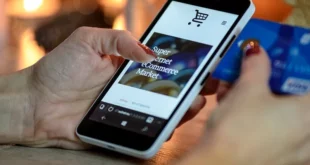Issue 37, Winter/Spring 2024 https://doi.org/10.70090/SSDE24CM Abstract The proliferation of artificial intelligence (AI) technologies has revolutionized business. Simultaneously, marketers have benefited tremendously from this technology, which has enhanced digital marketing capacities. This is achieved by AI analyzing individual consumer data and purchasing behavior to target specific products that suit personal preferences, …
Read More »United Arab Emirates
Mitigating fake news and misinformation using news literacy behaviors (NLBs)
Issue 35, winter/spring 2023 https://doi.org/10.70090/STA23MFN Abstract The increasing presence of fake news and misinformation in the contemporary digital media landscape is of concern to practitioners, educators, policy makers, and the public alike. Whilst the existence of fake news is not new, audiences are aware that the ‘quality’ of information that …
Read More »Crime News in a Loyalist Press Environment
Issue 35, winter/spring 2023 https://doi.org/10.70090/JG23CNLP Abstract Several laws regulate and influence reporting on crime in the United Arab Emirates, a country in which journalism functions within a Loyalist Press environment. These include elements in the 1980 press law and the recently updated penal code and cybercrimes laws. This legislation can …
Read More »The Role of Social Media in Developing Interests in Sports Among Arab Women
Issue 33, winter/spring 2022 https://doi.org/10.70090/AA22RSMD Abstract This paper examines the impact of social media in developing Arab women’s interest in sports. A survey questionnaire based on the uses and gratification theory was distributed to 411 Arab women from different age groups, education levels, and employment statuses. In analyzing the results …
Read More »The Impact of Social Media on Arab Health Risk Perception during COVID-19
Issue 31, winter/spring 2021 https://doi.org/10.70090/SE21ISMA Abstract During the pandemic, social media became a repository for information obtained through official pages of governments in charge. Official and unofficial news sources occasionally featured false or misleading news.This study focuses on Arab audiences from the MENA region, aiming to investigate their social media …
Read More »Book Review | Routledge Handbook on Arab Media
First Edition - Edited By Noureddine Miladi, Noha Mellor (Routledge, 2020) The Routledge Handbook on Arab Media is an encyclopedic depiction of the history, roles, models of ownership, and regulations of print, broadcast, and online media in 20 Arab countries out of the 22 Arab countries represented in the Arab …
Read More »“I’ll See You on Zoom!” International Educators’ Perceptions of Online Teaching Amid, and Beyond, Covid-19
Issue 30, summer/fall 2020 https://doi.org/10.70090/ASSK20ZI Abstract When the COVID-19 pandemic swept the world in 2020, it affected every aspect of life, including education. The spread of this pandemic compelled the world to shift from traditional classroom education to online learning. This exploratory qualitative research study investigates the critical and timely …
Read More »The Role of Smartphone Applications in Risk and Natural Disaster Communication Management (Arabic)
Issue 30, summer/fall 2020 https://doi.org/10.70090/SSDE20SM Scroll down for the Arabic abstract. Abstract Natural disasters are one of the most dangerous challenges facing societies because of the heavy human, economic, and social losses they cause, besides the damages in infrastructure and holdings. While it is difficult to prevent some risks or …
Read More »Factors Influencing Public Attitudes toward Paid Online Newspaper Subscriptions- A Field Study (Arabic)
Issue 30, summer/fall 2020 https://doi.org/10.70090/EBD20FIP Scroll down for the Arabic abstract. Abstract Despite the implementation of new business models in several Western media organizations, most Arab newspapers have not yet explored these models, and little is known about public attitudes towards their willingness to pay for online news. The study …
Read More »Knowledge, understanding, and adherence to Social Media regulations by youth in the United Arab Emirates
Issue 30, summer/fall 2020 https://doi.org/10.70090/TS20KUAS Abstract The study deals with legislation and guidelines related to the use of virtual space, especially social media. A special focus has been placed on youth in the United Arab Emirates, where a set of regulations are being implemented, in addition to a series of …
Read More » Arab Media & Society The Arab Media Hub
Arab Media & Society The Arab Media Hub










